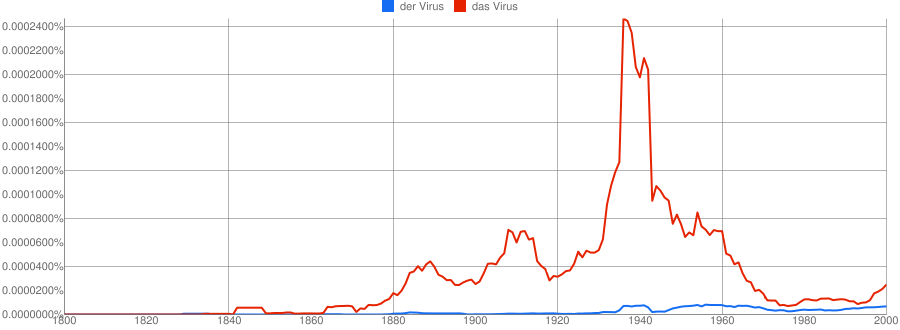Well, Germans tend to try to keep the original gender of a loan word (if known and if possible).
Virus is Latin (meaning poison), and of neutral gender!
This is why people who try to remember their (especially humanistic) education will always try to keep it as a neutral gender: das Virus, and this is especially true in medicine, because in this field, Latin language has still a quite strong influence.
Contrast to this, the use of this word in computer technology is rather new. My impression is (without wanting to take the time to google for statistics) that IT technology is dominated by people to have a rather low (almost non-existing) interest for classic languages.
Therefore the word Virus has been re-interpreted by people who were simply inspired by the fact that it ends with -us. Even in Latin, most -us words are masculine. (Virus and domus are the only exceptions I know.)
Due to what I said above, Germans also tend to believe that all -us words should be masculine.
Therefore people who do not know the real Latin gender (or do not care) tend to use it as a masculine word, and since the number of such people has been constantly increasing over the years, the use of das Virus is slowly decaying. Probably medicine is the main refugium for the neutral gender.
Since the Duden has always had the policy of accepting general habits, it tends to simply accept both genders.

